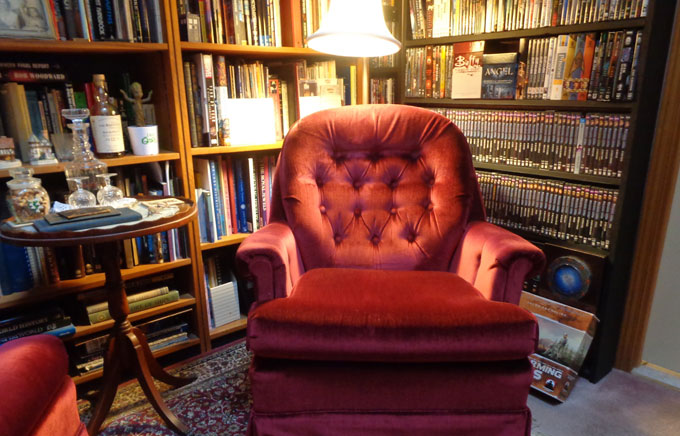
A nuclear war on Earth creates three states: Oceania, Eurasia, and East Asia. In 1984, London is the capital of Airstrip One, a province of Oceania, controlled by one party under the leadership of Big Brother. Winston Smith (Edmond O’Brien), a member of the Outer Party, meets Julia (Jan Sterling), whom he thinks may be a member of the Thought Police. When he returns to his drab apartment, the contents of his briefcase are routinely examined by an electronic surveillance eye. But he has hidden a small black diary and writes down his subversive thoughts.
The little girl who lives next door, Selina Parsons (Carol Wolveridge), enters his apartment to practice denouncing him as a traitor, but her father Robert (Donald Pleasance) invites him out for a drink. They spot Rutherford and Jones, who have been rehabilitated by the Ministry of Love. In a junk shop later, Julia enters the shop, and he scurries into the street, where the police order him to see the Administration next morning.
There, he is reprimanded by a party official for socializing with the common masses. Afterwards, he goes to his job at Records in the Ministry of Truth. He finds a document that proves Jones and Rutherford innocent, and he is told to destroy it. At a political rally, Julia passes him a note professing her love. They agree to meet Sunday in a meadow outside London. There they touch each other, though that is forbidden by the Anti-Sex League, and make love. Two weeks later, he proposes renting a room at the junk shop, where there is no monitor. He confides to Julia that he believes General O’Connor (Michael Redgrave), his superior, may be a member of the Underground.
One night, he finds a note in O’Connor’s handwriting that says, “Down with Big Brother.” Julia and Winston go to O’Connor’s apartment and tell him they want to join the Underground. O’Connor tells Winston to carry an empty briefcase at all times. At a Hate Week rally, a man switches briefcases with Winston. Inside is a treatise by the head of the Underground. In their secret room, Julia says that only love can defeat Big Brother. The police burst in and arrest them.
At the Ministry of Love, Winston is kept in a pit. His neighbor Parsons is thrown in the pit, denounced by his daughter for muttering seditious statements in his sleep. O’Connor enters and reveals himself as an agent of the State. Winston is brainwashed. Even after electroshock, he declares that nothing will eradicate his love for Julia. He is confined with rats, his greatest fear, and begs his captors to feed Julia to them instead. Wandering in the street, he sees Julia. They confess to betraying each other. Big Brother announces that the Eurasian Army has been routed. In the end, Winston cheers, “Long live Big Brother.” But the original release had an alternate ending, in which he and Julia shout, “Down with Big Brother,” and are shot to death.
The film, of course, was based on George Orwell’s 1949 book, the first film adaptation, but hardly the last. It was directed by Michael Anderson, and followed the popular TV version, appearing on the BBC in 1954, starring Peter Cushing and Andre Morell. The script was written by William Templeton, who had written a version in 1953. The 1956 version was funded by the CIA, as was the 1984 version of Animal Farm, because the CIA considered them anti-communist. The film was rather freely adapted from the novel but was just as bleak and horrific. A version in 1984, with John Hurt, Richard Burton (his last role), and Susanna Hamilton, was also cold and bleak.
Sonia Orwell, widow of George Orwell, hated the triumphant alternate version (as did the public), and had the version withdrawn from circulation. Sir Michael Redgrave played a character called O’Brien in the book, but because Edmund O’Brien played Winston, the name was changed to O’Connor. Michael Redgrave had been a leftist as a young man and was on the list of communist sympathizers that George Orwell passed to the British government. The basic story was largely recycled for the James Bond film Spectre in 2015.
